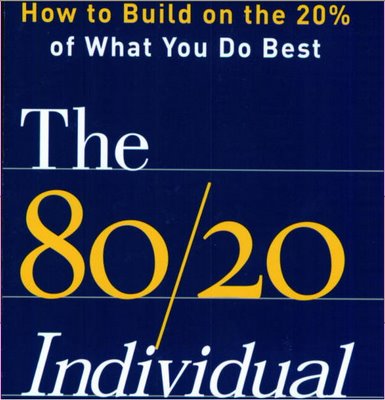177. Let people use you
"I can't believe he used me! I can't believe I fell for him!"
"I feel so used!"
"She's just using you, man, I'm telling ya! She's a gold digger!"
Usually, when you hear the above, it's not a good sign!
However, something new is going on today in our Knowledge Economy: the more people use you -- your expertise, experience, knowledge, connections, special access to certain resources, assets, etc. -- the more valuable you become!
For example, 849 complete strangers have used me! And I'm happy about it!
They asked a question on Yahoo! Answers (http://answers.yahoo.com), and I answered it. 151 have even selected my answer as the Best Answer (meaning probably that they would happily use me again!).
My point is that I don't mind being used, because I am able to increase my market value.
How?
By being forced to put on paper (on the Web rather) precisely what it is that I know. If it wasn't for these 849 people, I would never have been motivated to make explicit what I know.
(Here's a secret, but keep it between you and me, all right? I'm planning on publishing a book of my best answers and sell it worldwide. The 849 people who asked me questions, can even become my e-book resellers worldwide).
The bonus is that the people who have selected my answer as the Best often write encouraging comments and even expressions of admiration (especially for this blog that you are reading). I feel pretty good! :-)
In your case, I'm sure you know stuff that you'd be happy to share with others. The simplest way to do so is to create a blog (free) at Blogger (www.blogger.com).
You can just list 10 or 20 topics that you're really knowledgeable about, and then ask friends, coworkers, contacts, etc. to visit your blog and check those topics. They can then ask you anything they want on those topics. You then provide the answers right on that blog.
The key to success in one's career or business, is to help as many people as possible (then, they will remember you when a job opportunity comes along, or a business opportunity pops up). The best (and easiest) way to help people is to share what you know.

